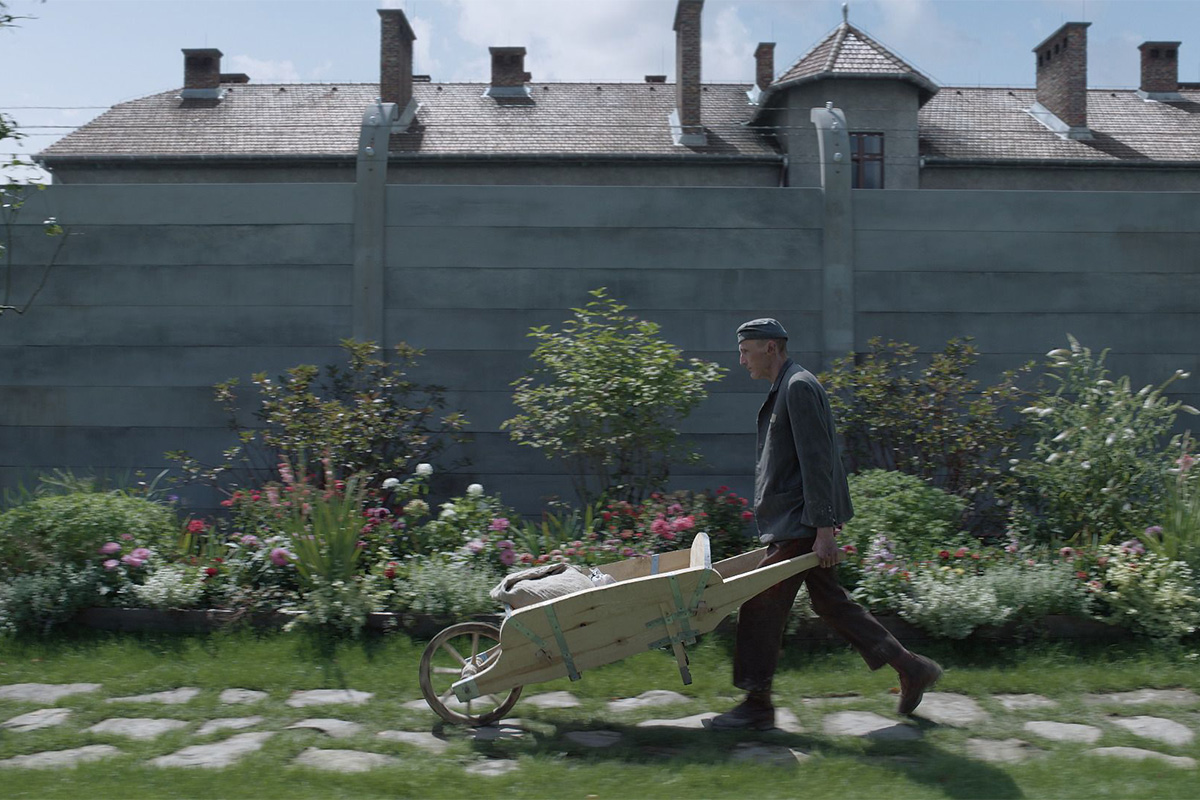I cry so often watching movies. So regularly that I started keeping a list of movies that make me cry and why. Recent entries to my “Sob Cinema” list range as widely as “Maestro,” because I was so moved by the “Resurrection Symphony,” and “The LEGO Batman Movie,” because how can I not cry when LEGO Batman and LEGO Robin finally realize they’re family after all?
Everyone told me that “The Zone of Interest,” a Golden Globe and Academy Award-nominated movie by Jonathan Glazer based on a Martin Amis book of the same name, is one of the most devastating, tear-inducing and timely Holocaust movies they’ve ever seen. I fully expected it to bring me to tears, so I went to see it for myself.
I watched an idyllic German family with their huge home and gorgeous garden. I watched Rudolf Höss (Christian Friedel), the quiet, stern but loving father raise his many beautiful children. I watched his daffy, privileged wife Hedwig (Sandra Hüller) make their home and host guests. I watched their dog run around and their friends splash in the pool.
I also watched the unmistakable barracks of Auschwitz standing just a few feet behind the Höss’ garden wall. I watched Rudolf go to work next door as the architect and commander of the extermination camp, as proud of his work as can be. I watched the Höss children stare at the chimney smoke of human crematoriums all through the night. The light of the fire was a novelty to them.
“The Zone of Interest” is intended to be as dull a depiction of the Höss family’s life as possible. Not very much plot for most of the run time. Instead, we sit back and watch as everyday German life blinds and deafens itself to the monstrosity of the death camp next door. Sitting directly next to the greatest atrocity in Jewish history, the Höss family’s supposed normalcy is meant to reflect the whole of society’s blindness to human suffering.
The constant din of screams and gunshots harrowed them. The glimpses of Jews laboring to their deaths in the background of luxury left them in tears. But “The Zone of Interest” did not hit me like that. Like the many, many Holocaust movies I’ve seen before, it barely roused me at all.
When the iconic Auschwitz barracks first came on screen, my only thought was that I had been there before, and it was more upsetting in person. When the ashes of my ancestors were used as gardening implements, I cringed, but I did not cry like others in the theater.
I tried to bring myself to tears. The film is incredibly well-made on an artistic and intellectual level. But I felt only mild discomfort from the bright lights and loud noises. I sat there desperately hoping that something would upset me enough to cry, but I never did. Tossing and turning in my seat, I started worrying that I had been inured to the movie’s horrors by years of Holocaust education. Had years of Holocaust education, including ample real-life witness to the remnants of the Shoah, dampened my emotional response?
I grew angry with myself. Why could such a vivid and compelling depiction of the Holocaust not move me? And if I, a professional Jewish educator and person who cried watching “The LEGO Batman Movie,” could not find myself moved by “The Zone of Interest,” might this be a common experience for other Jewish adults, too?
I spent the days after seeing “The Zone of Interest” asking my Jewish friends if their experiences were similar. The consensus was clear. All of us learned about the Holocaust growing up in religious school. Some got upset with friends in history class for making Holocaust jokes despite brief public school lessons on the subject. Many had wept at Auschwitz, Majdanek or other death camps in Poland in our teens.
But no matter how many Holocaust movies we watch — and we’ve collectively seen more than we can count — we agreed that they rarely manage to stir us anymore. Not in the way that our non-Jewish friends are moved, at least. With every conversation, it felt more and more like something was wrong with me — with us — for not writhing in anger over these vivid depictions of the Holocaust’s worst atrocities. Were we the ones who had become blind to the suffering director Jonathan Glazer was addressing and shaming?
Just as I was nearly ready to give up on my quest to understand why “The Zone of Interest” couldn’t make me cry, another question came to mind: Why was I so obsessed with needing the movie to make me cry in the first place?
I finally realized that I wasn’t upset because the movie didn’t make me cry. I was mad at myself for treating the Holocaust like part of a movie instead of the very real atrocity that it was.
I have, in fact, been blind. “The Zone of Interest” was about me after all. I couldn’t cry because I assumed I had nothing left to learn from another new Holocaust movie. But I see now that it’s OK to have a different relationship to Holocaust movies than my non-Jewish friends. Regardless of my emotional response, and I still hope I can find a place for sadness in the face of human suffering, I recommit myself now to the true lesson of every Holocaust movie.
We must not blind ourselves. We must bear witness to human atrocities no matter what so that we can demand they’re never committed again.



